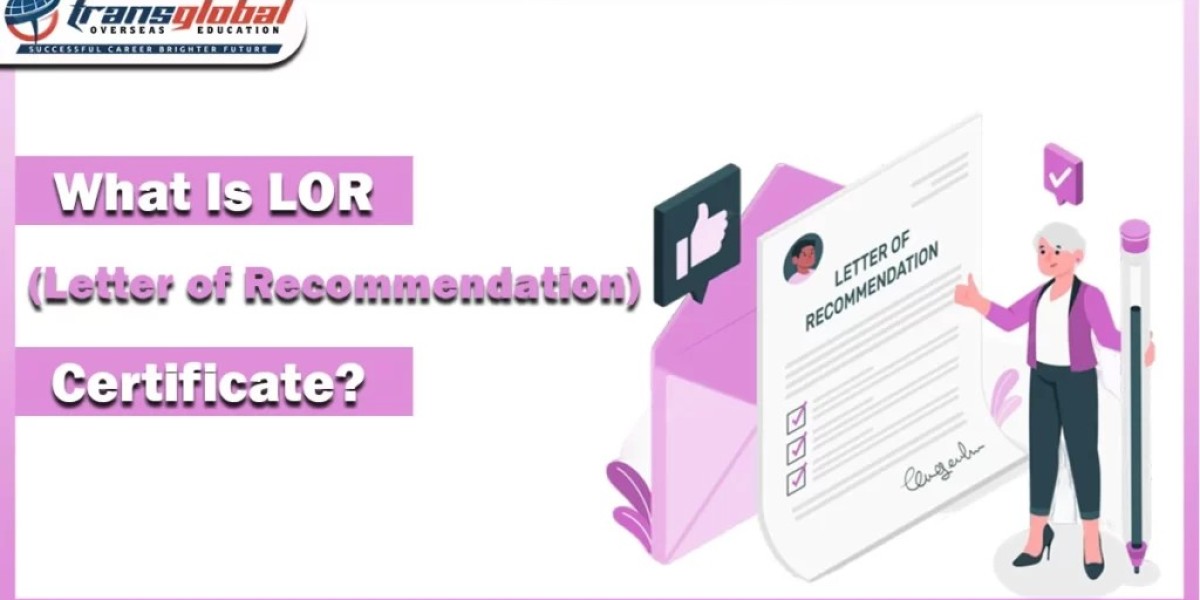A Letter of Recommendation (LOR) is a crucial document often required during the admissions process for universities, graduate schools, and professional programs. It's a formal assessment of your qualifications, character, and potential by someone who knows you well in an academic or professional capacity. LORs provide admissions committees with insights into your abilities beyond test scores and grades, helping them make informed decisions.
Why are LORs Important?
Holistic Evaluation: LORs offer a comprehensive view of your character, work ethic, and potential.
Verification of Claims: They corroborate the information you've provided in your application.
Unique Perspectives: Different recommenders can highlight different aspects of your personality and skills.
Who Should Write Your LOR?
Professors: If you're applying for graduate school, professors who taught you in relevant courses are ideal. They can speak to your academic abilities, research potential, and intellectual curiosity.
Employers: For professional programs or jobs, supervisors or colleagues can provide valuable insights into your work ethic, leadership skills, and problem-solving abilities.
Mentors: If you've worked closely with a mentor, they can offer a unique perspective on your personal and professional growth.
The LOR Process: Step-by-Step
1. Choosing Your Recommenders: Select individuals who know you well academically and can speak confidently about your strengths and potential. Ideally, choose one or two professors who taught you in relevant courses for abroad education consultants who have observed your progress. Consider including a professional recommendation if you have relevant work experience.
2. Initiate the Request Early: Don't wait until the last minute! Give your recommenders ample time to write a thoughtful letter. Provide them with deadlines for submission well in advance.
3. Provide Supporting Materials: Help your recommender craft a strong letter by offering relevant information such as your resume, transcript (unofficial is usually fine), a personal statement highlighting your academic goals, and details about the program you're applying to.
4. Express Your Gratitude: Thank your recommenders for their time and effort. A handwritten thank-you note is a thoughtful gesture.
Types of Letters of Recommendation (LORs)
LORs primarily fall into two main categories:
1. Academic LOR
Written by: Professors, teachers, or academic advisors.
Focus: Academic performance, research abilities, intellectual curiosity, and potential for further studies.
Common for: Graduate school applications, undergraduate admissions, and scholarships.
2. Professional LOR
Written by: Supervisors, employers, or colleagues.
Focus: Work ethic, leadership skills, problem-solving abilities, and professional achievements.
Common for: Job applications, professional programs (e.g., MBA, law school), and career advancements.
Additional Types (Less Common)
Personal LOR: While not as common, sometimes friends, family members, or mentors can write LORs, especially for personal or character-based evaluations.
Alumni LOR: Alumni of a particular institution might be asked to write LORs for applicants who are also alumni or have a strong connection to the school.
Note: The specific type of LOR required will depend on the program or institution you are applying to. Some applications may ask for a combination of academic and professional LORs.
Conclusion
A Letter of Recommendation (LOR) is a pivotal component in the application process for various academic and professional pursuits. It offers admissions and hiring committees invaluable insights into an applicant's qualifications, character, and potential that cannot be fully captured through standardized tests or resumes.
To maximize the impact of your LORs, carefully select recommenders who can provide compelling and specific examples of your abilities. Additionally, ensure they have ample time to write thoughtful and personalized letters. By following the guidelines outlined in this guide, you can significantly enhance your chances of securing a place in your desired program or position.
FAQs
1. Who should write my LOR?
Professors, employers, or mentors who can speak to your strengths and potential are ideal.
2. What should an LOR include?
A strong LOR includes an introduction, details about the recommender's relationship with you, your academic or professional performance, personal qualities, potential for success, and a final recommendation.
3. How can I help my recommenders?
Provide them with your resume, transcript, and information about the program you're applying to. Highlight specific achievements you want them to mention.
4. What are common LOR mistakes?
Generic letters, overly positive statements, focusing on negatives, and late submissions are common errors.
5. Are there different types of LORs?
Yes, primarily academic LORs (from professors) and professional LORs (from employers). Some programs may require both.
Remember, LORs offer a unique perspective on your abilities, so choose recommenders carefully and provide them with ample support.









